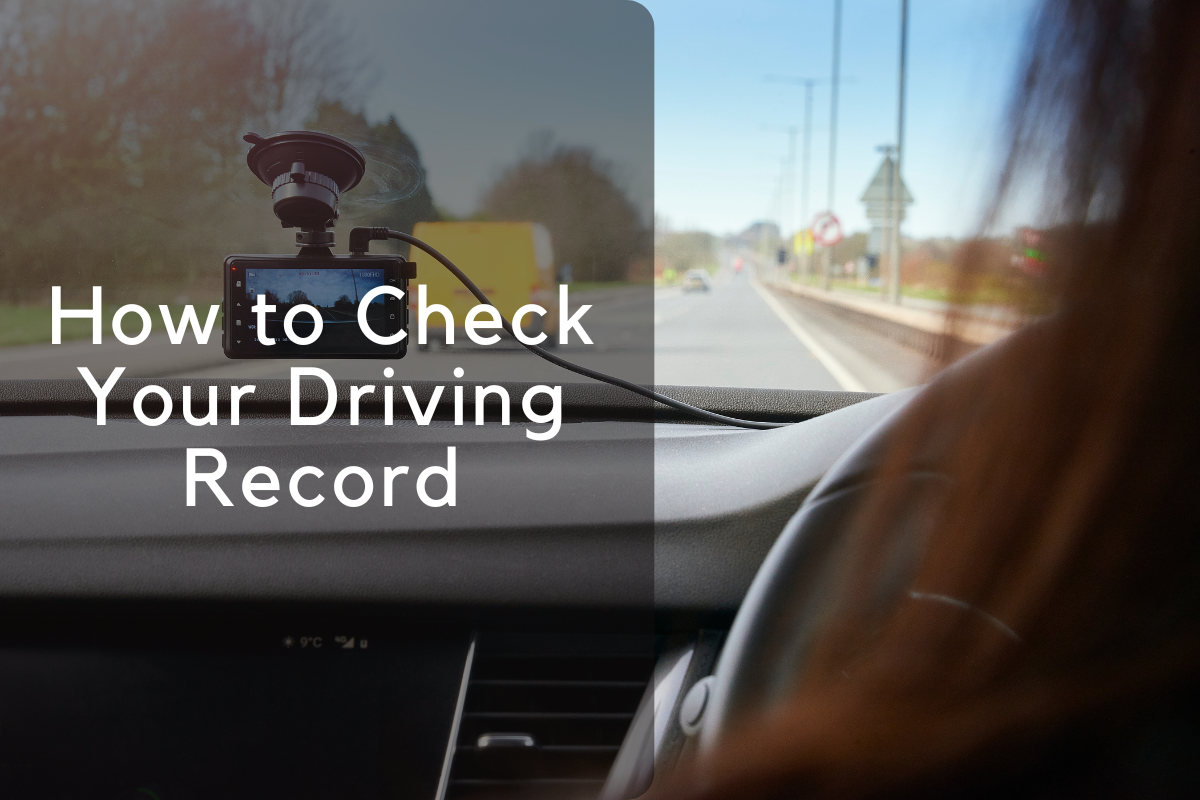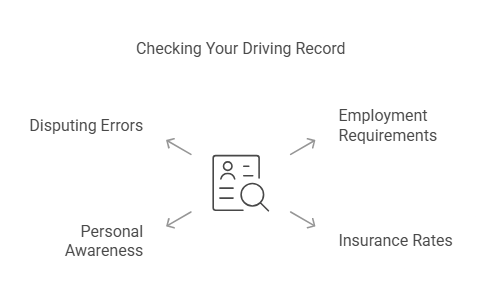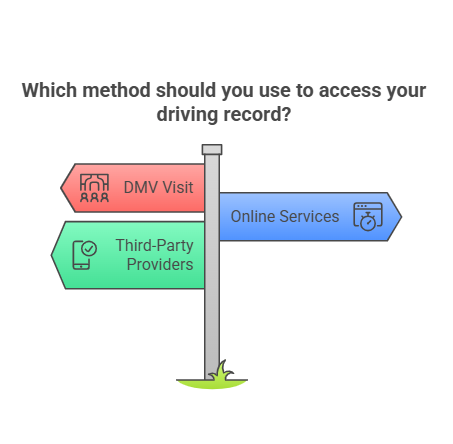Common Questions, Fixing Errors, and Conclusion on Checking Driving Records
Frequently Asked Questions About Checking Driving Records
How often should I check my driving record?
It’s recommended to check your driving record annually or before any major event, such as applying for a new job, renewing your insurance policy, or disputing a traffic violation.
What information is included in a driving record?
A driving record typically includes:
-
- Traffic violations and tickets.
- DUI or other serious offenses.
- Accidents you were involved in.
- License suspensions or revocations.
- Points accumulated (varies by state).
Can employers or insurers access my driving record?
Yes, employers and insurance companies often review driving records for employment or policy underwriting purposes.
How long does it take to receive a driving record?
The time varies depending on the method used:
-
- DMV: Typically a few days to weeks.
- Online portals: Instant to a few days.
- Third-party providers like Rapid Hire Solutions: Often instant or within a few hours.
What if I find errors in my driving record?
Errors can be disputed by contacting the DMV or the service provider that issued the record. It’s essential to provide supporting documentation to correct inaccuracies.
How often should I check my driving record?
It’s recommended to check your driving record annually or before any major event, such as applying for a new job, renewing your insurance policy, or disputing a traffic violation.
What information is included in a driving record?
A driving record typically includes:
-
- Traffic violations and tickets.
- DUI or other serious offenses.
- Accidents you were involved in.
- License suspensions or revocations.
- Points accumulated (varies by state).
Can employers or insurers access my driving record?
Yes, employers and insurance companies often review driving records for employment or policy underwriting purposes.
How long does it take to receive a driving record?
The time varies depending on the method used:
-
- DMV: Typically a few days to weeks.
- Online portals: Instant to a few days.
- Third-party providers like Rapid Hire Solutions: Often instant or within a few hours.
What if I find errors in my driving record?
Errors can be disputed by contacting the DMV or the service provider that issued the record. It’s essential to provide supporting documentation to correct inaccuracies.
How to Fix Errors on Your Driving Record
- Identify the Error:
- Review your record carefully to pinpoint incorrect information, such as a violation that isn’t yours or inaccurate points.
- Gather Documentation:
- Collect evidence to support your dispute, such as court records, tickets, or payment receipts.
- Contact the DMV or Issuer:
- Submit your dispute directly to the DMV or the entity that provided your record. Most offer forms specifically for this purpose.
- Follow Up:
- Ensure your dispute is being reviewed and resolved. Keep copies of all correspondence.
Best Practices for Maintaining a Clean Driving Record
- Drive Responsibly: Adhere to traffic laws and avoid speeding or reckless behavior.
- Pay Fines on Time: Address traffic tickets promptly to avoid additional penalties.
- Attend Traffic School: In some states, completing traffic school can remove points from your record.
- Monitor Your Record Regularly: Routine checks help you spot and address issues early.
Conclusion
Checking your driving record is an essential step for maintaining your reputation, improving employment opportunities, and ensuring fair insurance rates. Whether you choose to access your record through the DMV, online portals, or trusted third-party providers like www.rapidhiresolutions.com, the process is straightforward and highly beneficial.
Rapid Hire Solutions stands out as a reliable resource for obtaining driving records efficiently while providing additional services for background checks and employment verifications. By staying proactive, disputing inaccuracies, and maintaining safe driving habits, you can ensure your driving record accurately reflects your history and supports your goals.



